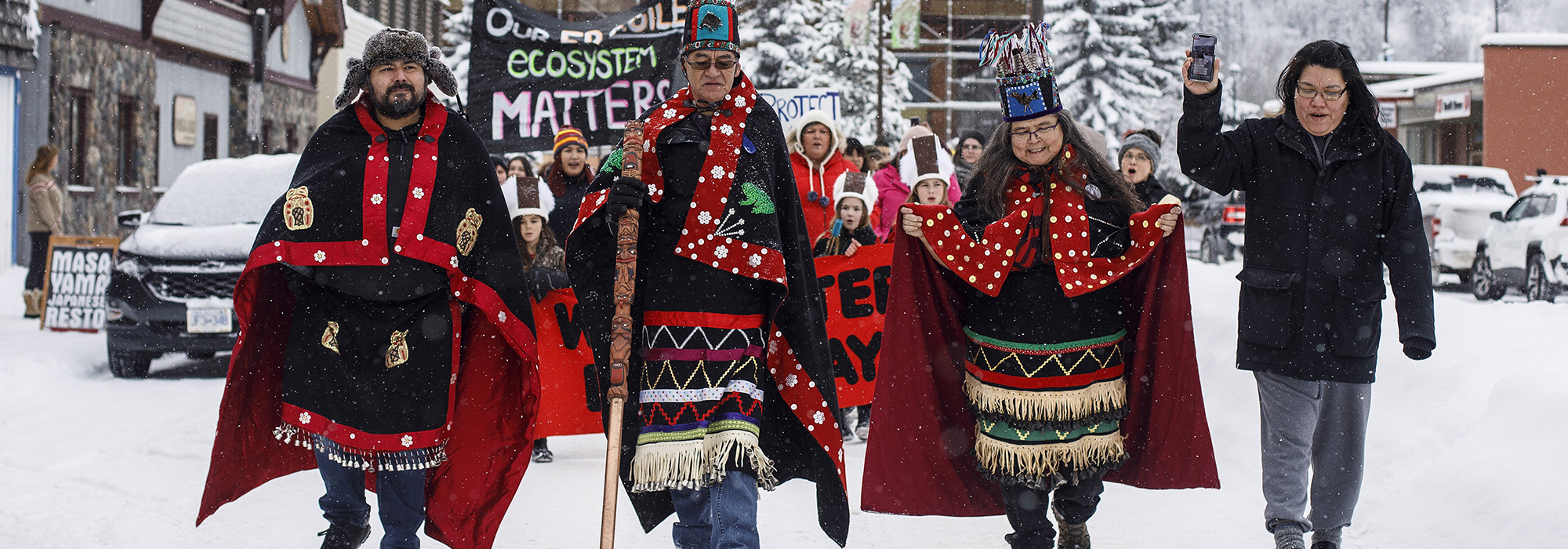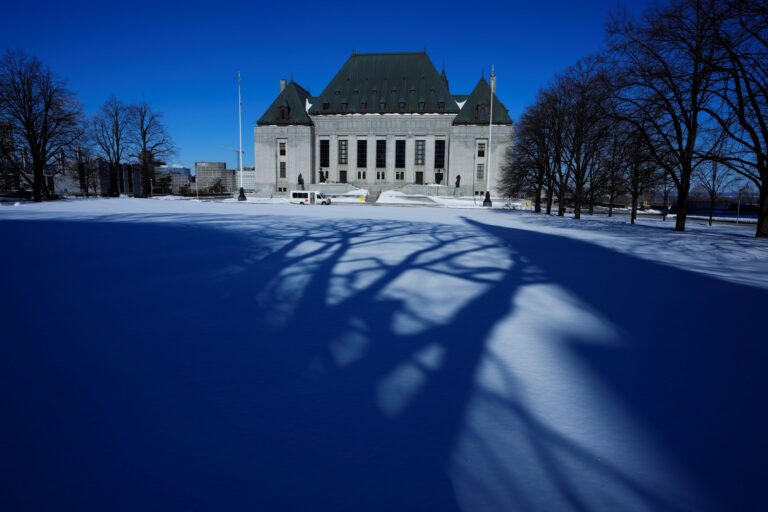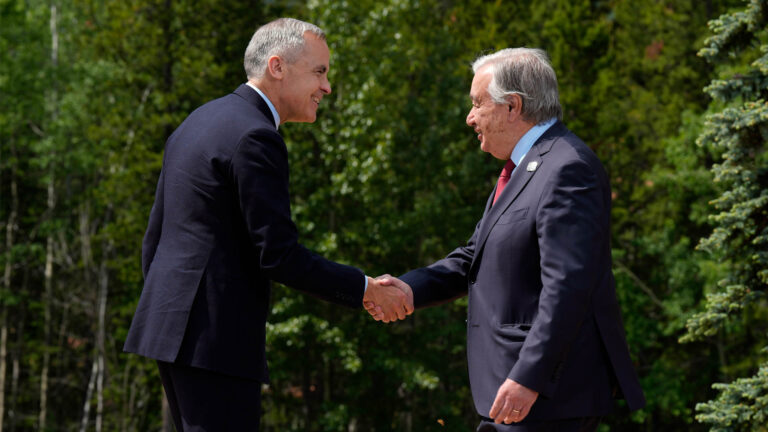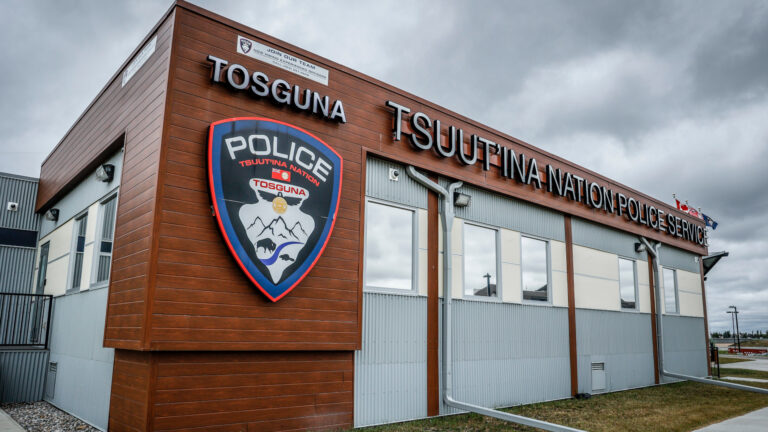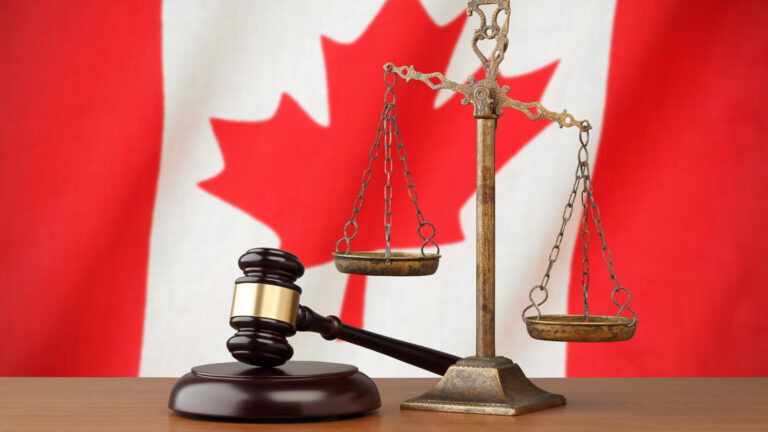Last October, an international celebration occurred in the verdant coastal community of Bella Bella, BC. Members of the Heiltsuk Nation finally opened their Gvakva’aus Hailzaqv, their Big House, a red and yellow cedar structure that is the centre of their governance and ceremonial life. Christian missionaries destroyed the last Big House 120 years ago, the Heiltsuk say. In those years, pivotal elements of Indigenous life and law were declared illegal, including the gift-giving potlatch ceremonies that “were once the primary economic system of Coastal First People.” The potlatch ban is hardly ancient history – that law was not removed from the books until 1951. Nearly six million Canadians who filled out the last census were alive in 1951.
The Heiltsuk People, like the Wet’suwet’en currently at the centre of national attention, not only had to live with odious Canadian laws (that could themselves be seen as violating fundamental concepts of justice), but they also had their land taken outside of the processes promised by the Crown. Treaty negotiations did not take place in vast tracts of British Columbia – a direct affront to the rule of law. “Under international and British law at the time of colonization, unless Indigenous people were conquered or treaties were made with them, the Indigenous interest in their land was to be respected by the law of the European colonizing nation,” historian and lawyer Bruce McIvor explained last week.
Politicians and pundits have been calling for the rule of law to be respected, given the ongoing protests in BC and in southern Ontario in support of the Wet’suwet’en hereditary chiefs opposing the Coastal GasLink project. The protests have stopped CN and Via Rail trains from running in parts of Canada. But let’s set aside for a moment the question of the legitimacy or illegality of those protests. Where have all these influential voices been on the much larger rule of law question, the one that set the stage for these conflicts in the first place?
For more than 150 years, Indigenous governance structures and legal systems have been dismantled, local knowledge and language deliberately decimated, treaties violated, and Indigenous land settled without a legal leg to stand on. Still, even with all the bad laws, bad faith, and shrugging off the rule of law, we can’t seem to muster as a country a heartbeat of empathy or patience or self awareness.
We also ignore that the courts have acknowledged repeatedly that Indigenous laws and rights are part of the rule of law in Canada. “Indigenous legal traditions are among Canada’s legal traditions. They form part of the law of the land,” Federal Court Justice Sébastien Grammond wrote in a 2018 decision.
National newspaper columnists have called the Wet’suwet’en system of governance an “oligarchy” and based on a “feudal genealogy,” but the Courts (which help shape the rule of law) haven’t shown that disdain. The Supreme Court has acknowledged the limits of the Indian Act-prescribed structures when considering the holders of Aboriginal title – and dealt specifically with the Wet’suwet’en hereditary chiefs’ authority in the 1997 Delgamuukw decision. In the Supreme Court of British Columbia Tsilhqot’in decision, Justice David Vickers put it succinctly: “While band level organization may have meaning to a Canadian federal bureaucracy, it is without any meaning in the resolution of Aboriginal title and rights for Tsilhqot’in people.”
Indigenous communities have been trying to revivify their original forms of government that existed prior to colonization, but this is not quick work. Language, legal traditions, and skills were gutted by the Indian Act, the residential school system, the Sixties Scoop, and other assimilationist policies. Groups such as the Centre for First Nations Governance work with communities to try to help restore lost systems and empower local leadership. The 1996 Royal Commission on Aboriginal Peoples recommended Canada support this restorative process, but the report languished on the shelf for decades.
Canadian law when it comes to Indigenous communities has been a slippery, oppressive thing throughout the country’s history. Treaties are the law, but they are routinely violated. Laws were invented to erase Indigenous culture. It took until last year for the federal government to finally remove the legislated gender discrimination from the Indian Act.
In British Columbia, the type of land title negotiations that created the Douglas treaties on Vancouver Island (themselves the subject of contention) were abandoned and unilateral settlement occurred on vast tracts of Indigenous land elsewhere in the province. The rule of law and the “honour of the Crown” were disregarded. In 1997, the Supreme Court of Canada advised the Crown that it had a “moral, if not a legal, duty,” to settle the question of title in order to facilitate “the reconciliation of the pre-existence of aboriginal societies with the sovereignty of the Crown.” But today, delving into those fundamental issues around land title and Canada’s fundamental violations of the rule of law seems to exhaust the stamina of many Canadian political and thought leaders.
Photo: Wet’suwet’en Hereditary Chiefs from left, Rob Alfred, John Ridsdale, centre, and Antoinette Austin, who oppose the Costal Gaslink pipeline take part in a rally in Smithers, BC, on January 10, 2020. THE CANADIAN PRESS/Jason Franson
Do you have something to say about the article you just read? Be part of the Policy Options discussion, and send in your own submission. Here is a link on how to do it. | Souhaitez-vous réagir à cet article ? Joignez-vous aux débats d’Options politiques et soumettez-nous votre texte en suivant ces directives.
